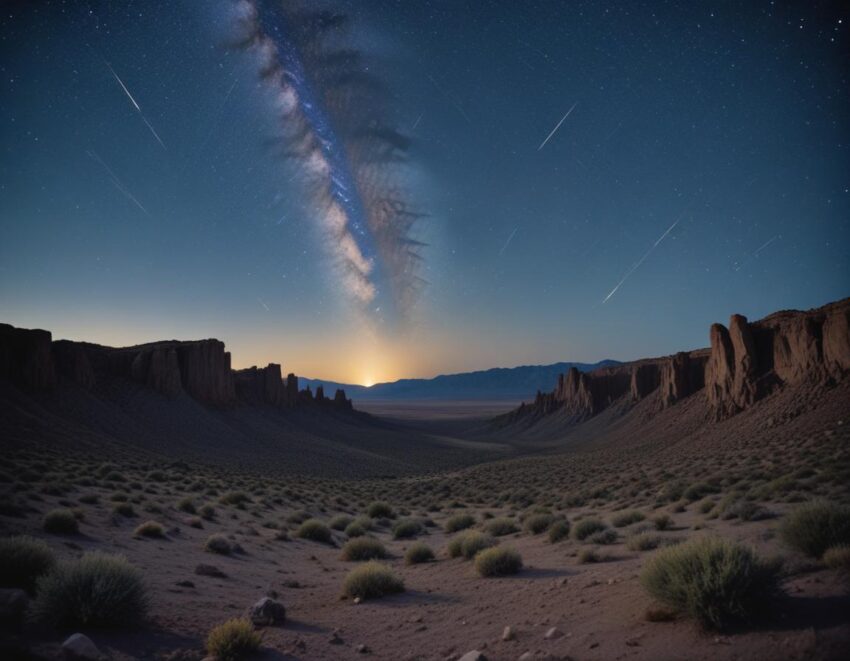Pakistan Bans New Hotel Construction Around Tourist Lakes to Protect Fragile Ecosystems and Preserve Natural Beauty in the Key Destinations Like Saif-ul-Malook and Lake Attabad
Government of Pakistan has implemented a bold and progressive environmental legislation to ban the construction of new hotels near the picturesque lakes of the North for the next five years which, will pass by specifically starting with the enchanting lake laden Gilgit-Baltistan region. This move is expected to stop a growing number of unauthorised developments that wreak havoc on the environment and the region’s picturesque unspoiled landscapes.
Gilgit-Baltistan: A Jewel Under Threat
Gilgit-Baltistan is revered by the entire world for its enchanting natural beauty, where there are an estimated 13,000 glaciers — making Pakistan the land with the most glacial ice after the polar region. It’s been cherished as a draw for tourists, who come for its dramatic peaks, for the history that has been traced to the ancient Silk Road passing through it, for its cherry orchards and crystal-clear lakes and its relentless glaciers.
But this terrestrial paradise was till recently being subjected to huge pressure on account of a skyrocketing construction. Mainly being led by outside firms, these developments have taxed local resources from depleted water and electricity supplies to mounting waste-management woes. Local people and conservationists fear it and are urging for urgent action to stop irreversible harm to the beloved ecological haven.
Immediate Impact and Response of Pakistan
The issue began making the headlines after a video was widely shared on social media showing a foreign tourist exposing major environmental violations made by a hotel located inside a Greek Natura 2000 area. The widely shared Instagram video showed sewage being dumped, purportedly, directly into Lake Attabad, a critical source of fresh water in Hunza Valley. They were resolutely determined to bring the dirty hotel down; the offending hotel was even stung with a heavy fine proving that the violation to environment will not be tolerated anymore.
It was a damning reminder to urgently review and enforce environmental protection measures in high tourist regions. In reaction, Gilgit-Baltistan’s Environmental Protection Authority quickly implemented the sweeping five-year construction ban, a response applauded by environmental campaigners, local citizens and activists.
Local Voices Echo the Significance of the Continuation
“Preservation of natural beauty is of paramount importance for us,” said Khadim Hussain, a high-ranking official of the Gilgit-Baltistan Environmental Protection Authority. Hussain issued a blunt warning about growths of the lumbering “forest of concrete” that unrestricted hotel construction would threaten to create, undermining what he felt was the peninsula’s true allure to tourists seeking natural glories not city grandeur.
Local residents and environmentalists like Asif Sakhi have hailed the government’s decision to rein for the order in a bid to promote responsible tourism and conservation. Sakhi also pointed towards the fast changing environmental degradation that was happing in the name of tourism and development and emphasized on protecting the natural lakes and rivers.
Shah Nawaz is a hotel manager who lives in the Hunza Valley area and expressed his support of the ban, emphasizing that it was the duty of both the locals and the business owners to preserve their natural heritage. He felt that this ban represented a universal move in favour of sustainability.
Balancing Tourism and Sustainability in Pakistan
Gilgit–Baltistan’s tourism which is mostly focused on mountain tourism needs proper attention to achieve sustainability of resources. AboutOver the past decade, tourism in the area has thrived – a surge that has, in turn, been a great economic stimulator. But uncontrolled growth has also led to ecological problems.
The recent ban considers both sides of the equation—an environmental conservation and sustainable economic development. Now that the new construction is stopped, there’s a critical opportunity for the authorities to shore up the environmental rules, get the waste management in order, and implement a plan for sustainable tourism in general.
Potential for Long-Term Positive Outcomes
This ambitious environmental initiative has the potential to transform the fortunes of Gilgit-Baltistan and its people for generations to come. By doing so the region may preserve its remarkable natural beauty and its rich biodiversity, key components in the kind of tourism they would like to develop.
Furthermore, it provides a chance to sensitize visitors and other decision-makers to a better understanding of the importance of responsible tourism to the valley’s delicate ecosystem. Balancing modern infrastructure changes, strong environmental enforcement, and environmentally oriented tourism initiatives are vital next steps.
A World Model for the Development of Responsible Tourism
Pakistan’s commitment to decisive action now places Gilgit-Baltistan as a possible global prototype for sustainable tourism and responsible environmental governance. What it shows, obviously, is that economic interests do not have to be in conflict with a sound environment!
The world will indeed be watching as Gilgit-Baltistan traverses through this critical five year period. How the experiment pans out in terms of preserving the environment alongside the tourism industry could be a fascinating template for other overtouristed destinations around the world under comparable strain.
The post Pakistan Bans New Hotel Construction Around Tourist Lakes to Protect Fragile Ecosystems and Preserve Natural Beauty in the Key Destinations Like Saif-ul-Malook and Lake Attabad appeared first on Travel And Tour World.
Pakistan Bans New Hotel Construction Around Tourist Lakes to Protect Fragile Ecosystems and Preserve Natural Beauty in the Key Destinations Like Saif-ul-Malook and Lake Attabad
| Divisions of Shy Paris Entertainment | ||||
|---|---|---|---|---|
| Shyparis Entertainment | Shy Paris Bookings | Linkz Radio | Klublinks | Shy Paris |
Shy Paris Bookings is a Division of
❤Shy Paris Entertainment ||||| International Spectacular Events, Stellar Event Planning and Management, & Celebrity Booking Agency. Please contact us as we can provide you with both international and/or local renowned full service event planning and management, & celebrity bookings at shyparisentertainment@gmail.com or
CONTACT: Email: shyparisentertainment@gmail.com
Facebook: ShyParis Youtube: @Shyparis Twitter: @Shyparisent Instagram: shyparisentertainment Whatsapp: 1-437-259-3399
✶✶✶✶✶✶✶✶✶✶✶✶✶✶✶✶✶✶✶✶✶✶✶✶✶✶✶✶✶✶✶✶✶✶✶✶✶✶✶✶✶✶✶✶✶✶✶✶✶✶
SHY PARIS ENTERTAINMENT COMPANIES
✅ ShyParisentertainment.co – https://shyparisentertainment.co
✅ Shyparisbookings.com – https://shyparisbookings.com
✅ Linkzradio.com – https://linkzradio.com
✅ Klublinks.com – https://klublinks.com
✅ Shypariswebdesign.com – https://shypariswebdesign.com
✅ ❤️ Shyparis – htttps://shyparis.com❤️








